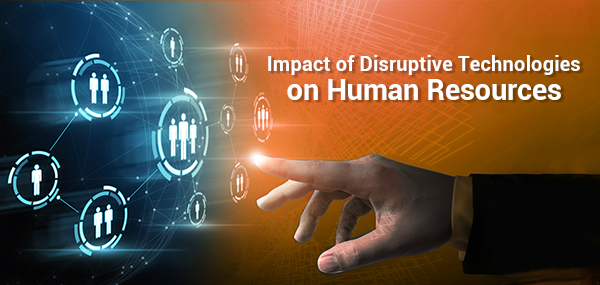
22 May 2020 – Regardless of rank or role, work has altered for the entire workforce with Covid-19. Whilst frontline healthcare workers subject themselves daily to the risk of infection to safeguard our health and that of the community, the back office has an equally important task – to keep the economy going within the constraints of stringent social distancing measures. For many, work has transitioned from office to home almost seamlessly. Much of the responsibility to comply with the work-from-home directive fell upon Human Resources (HR) practitioners, for them to make this adjustment as painless as possible for their staff.
Technology has been the core enabler of this rapid transition. In fact, technology has redefined the work of HR practitioners and continues to do so rapidly as emerging technologies are applied in the workplace. This is driven by both internal and external changes.
Recruitment
According to LinkedIn 2019 Global Talent Trends, 92% of recruiters rated soft skills as an important requirement in the candidates they assess. The majority of recruiters also depend on social cues in interviews. Unfortunately, these perceptions are not predictive, and are often influenced by unconscious biases. Fortunately, tools have been developed to facilitate online assessment during the application process. By analysing candidates’ responses, the recruiter can assess their soft skills more objectively and gain insights into how they can evaluate their strengths and weaknesses.
Artificial intelligence thus enables the effective screening and shortlisting of a long list of candidates, helping to save recruiters valuable time.
Retention
Retaining good employees is as, if not more, important as recruiting the right candidates. Based on a study by IBM1, attrition rates can be significantly reduced through data analysis to predict which employees are most likely to resign, and recommend actions to encourage them to stay. In the long run, such insight reduces the cost of recruitment, minimises disruption to on-going work, and improves employee morale.
Learning and development
BetterUp2, a learning and development consultancy, has adopted a data-driven approach to assess and benchmark an organisation. It combines behavioural sciences with data analysis, and uses metrics to measure real impact, allowing for effective organisational transformation. This has resulted in a 45% increase in productivity and a 63% improvement in staff retention among organisations.
Data-driven HRM
As a strategic function in the organisation, data science is fast reshaping the work of the HR Department. Being data-driven is no longer an option; it has become a necessity for strategic HRM.
To learn how to position your HR function to tap on latest technology, join us at our webinar ‘Impact of Disruptive Technologies on Human Resources’ on 3rd June 2020. Click on the link to register, https://bit.ly/ImpactofDisruptiveTech.
Webinar Session:
Date: 3 June 2020 (Wednesday)
Time: 1.30 pm – 3.30 pm

Dr. Amirhassan Monajemi is a Senior Lecturer in AI and Data Science with the School of Continuing and Lifelong Education (SCALE) at the National University of Singapore (NUS). Before joining the NUS, he was with the Faculty of Computer Engineering, University of Isfahan, Iran, where he was serving as a professor of AI, Machine Learning, and Data Science. He was born in 1968 in Isfahan, Iran. He studied towards BSc and MSc in Computer Engineering at Isfahan University of Technology (IUT), and Shiraz University respectively. He got his PhD in computer engineering, pattern recognition and image processing, from the University of Bristol, Bristol, England, in 2005. His research interests include AI, Machine Learning, Machine Vision, IoT, Data Science, and their applications.
He has taught the artificial intelligence courses, including AI, Advanced AI, Expert Systems, Decision Support Systems, Neural Networks, and Cognitive Science since 2005 at both undergraduate and postgraduate levels. He was awarded the best university teacher of the province in 2012. He also has studied Learning Management Systems, E-Learning, and E-Learning for workplaces since 2007.
Dr. Monajemi has registered a few patents in the fields of AI, Machine Vision, and Signal Processing applications, including an AI and machine vision-based driver drowsiness detection system and a low power consuming spherical robot. He also has published more than a hundred research papers in peer-reviewed, indexed journals and international conferences (IEEE, Elsevier, Springer, and so on), and supervised several Data Science, IoT, and AI industrial projects in various scales, including Isfahan intelligent traffic system delivery and testing, and red light runners detection. He is experienced in different sub-domains of Artificial Intelligence and Machine Learning, from theory to practice, including Deep Learning, Logic, and Optimization.
1https://fortune.com/2019/07/14/artificial-intelligence-workplace-ibm-annual-review/
2https://www.betterup.com/en-us/why-betterup/our-science